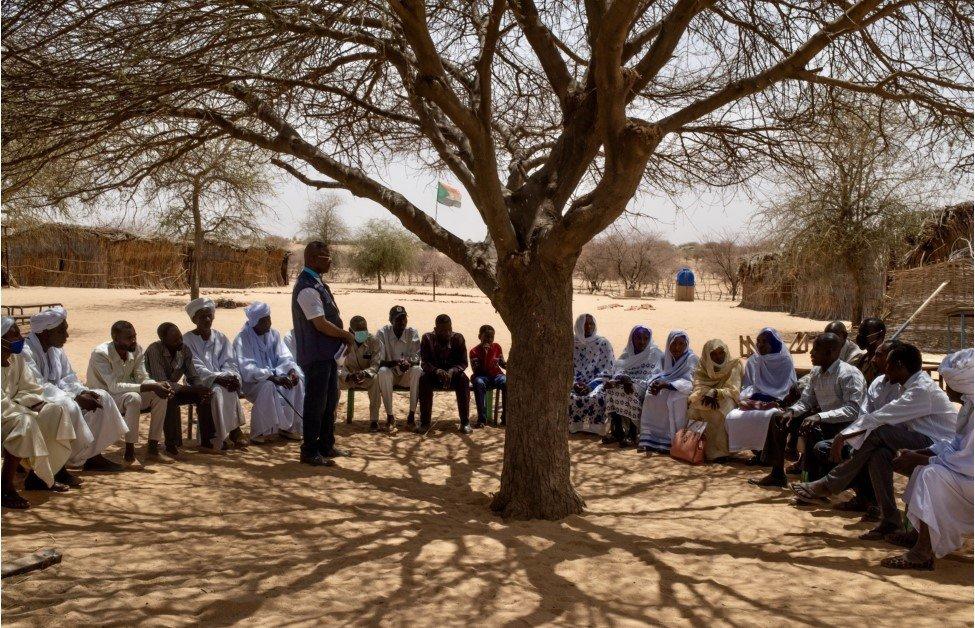This blog is part of a curated blog series, ‘Prioritizing Universal Health Coverage in the Political Agenda: Needs, Barriers & Opportunities’, aligned with HSR 2022 from the UHC2030 Health Systems Related Initiatives. It focuses on the HSR 2022 sub-theme: The role of comprehensive PHC in promoting sustainability and the contribution of new technologies.
The article first appeared on this website.
The COVID-19 pandemic has confirmed that every country is vulnerable to public health emergencies since most countries reported large impact on health and service delivery, but also due to the global economic and social consequences of the pandemic.
Universal Health Coverage (UHC), health security and health determinants are interdependent elements influencing the health of populations. They require a whole-of-government and -society engagement to build integrated and resilient health systems through every sectoral policy, considering the complexity of health and the necessity to apply a wide systemic approach[1].
Centred on people, health systems need to be close to communities to take into account their needs in the respect of their cultural practices, enhancing trust between health service providers and populations, but also awareness on diseases and care pathways.
Furthermore, the compliance to policies cannot be expected as absolute if populations and actors of health systems are not included in policy-making processes, especially in a world fragmented by inequalities. Inclusion, solidarity, transparency and accountability are key to make UHC a reality.
The Primary Health Care approach to health systems strengthening sustains all these requirements and Member States have committed through the Declaration of Astana in 2018 and several resolutions[2] to use Primary Health Care as the fundamental programmatic engine to reach UHC.
Since 2011, WHO has been sustaining the UHC Partnership to build resilient and integrated health systems in order to operationalize Universal Health Coverage through a Primary Health Care approach. A decade on, WHO has been deploying a large network of more than 130 health policy advisers to reinforce strategic and technical leadership in countries, progressively incorporated into the core workforce of WHO.
Through this network, WHO has been able to extend its operational arm to bring coherent technical expertise to Member States. A network of 130 country- and regional office-based health policy advisers empowered WHO country offices to build national technical and governance capacities to facilitate health policy cycles, generate evidence and political commitment, while creating synergies and harmonization between stakeholders and funding streams.
All countries benefiting from a dedicated technical assistance for health system strengthening from WHO have seen an increase in their UHC index during their involvement in the UHC Partnership. This improvement is the result of the global movement for UHC and is the results of a collaborative effort of National Authorities and partners in many cases.
While much work remains to be done, we need to recognize this progress achieved by many countries in improving their UHC index towards very ambitious targets. This movement needs now to be sustained to accelerate our journey to UHC and health security. Such an effort can benefit from the experiences and lessons learned by countries supported by health policy advisers.
Public health international agencies, and especially WHO, have an important role and responsibilities in reinforcing strategic and technical leadership for essential public health functions and primary care services.
Following the last World Health Assembly, WHO committed to increase its budget for intensive Primary Health Care support to Member States. This will make the health policy advisers network more sustainable. It is now calling on all global health organizations to engage, align and accelerate the movement to increase strategic and technical leadership, to strengthen integrated and resilient health systems, and make health for all a reality.
Learn more on the UHC Partnership by reading stories from the field and the FPH special edition.
---
[1] WHO, Building health systems resilience for universal health coverage and health security during the COVID-19 pandemic and beyond: WHO position paper. Geneva, 2021.
[2] Declaration of Astana, the accompanying WHA Resolution 72/2, the 2019 Global Monitoring Report on UHC, and the United Nations General Assembly High-level meeting on UHC.
